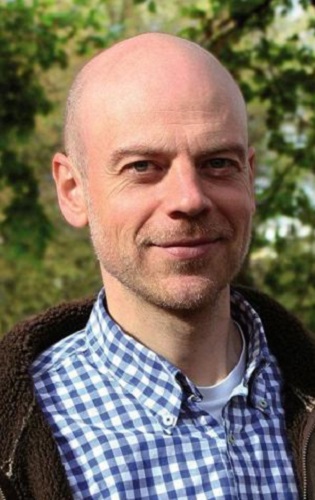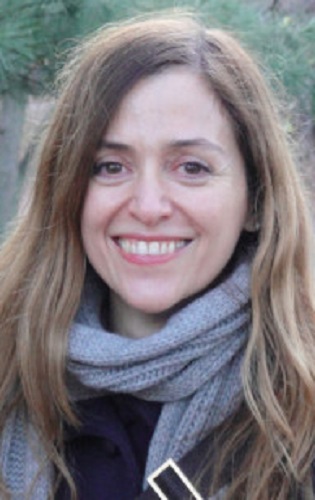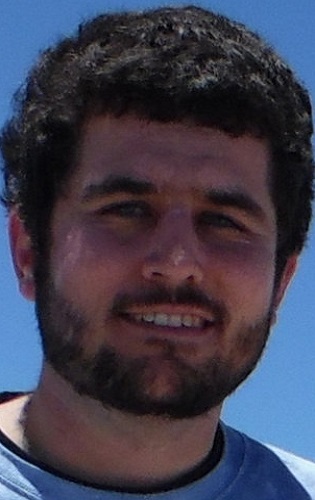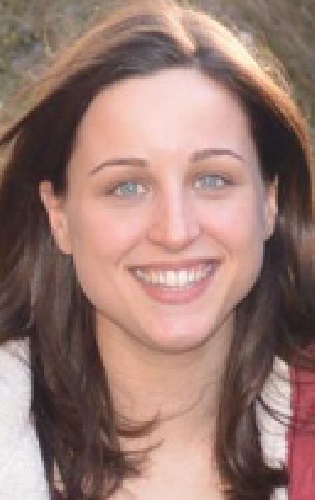











 | ||
| THURSDAY, 2 MAR 2023, 10:00-11:30 EDT Ecology Meets AI (talks are 20min-ish + 10min questions/discussion, all times are EDT) 10:00 EDT (New York) = 3pm BST (London) = 16:00 CEST (Berlin) | ||
| Time Slot | Title | Presenter |
| 10:00-10:15 | Welcome and Introduction | Tilo Burghardt |
| 10:15-10:45 | Talk and Discussion: Is Science Mostly Driven by Ideas or by Tools: In-field insect monitoring, tracking and environmental mapping systems. Starting from the maybe provocative questions if 'science is mostly driven by ideas or by tools' (Dyson 2012) I will present one of the most difficult computer vision and machine learning scenario, namely quantifying insect behaviour in natural environments: Tiny, low contrast and fast moving objects have to be localised in cluttered and dynamic scenes resulting in visual ambiguities, frequent occlusions and the need to process huge video files with inappropriate foreground-background ratios and sparse visitation events. I will summarize some of the most prominent challenges to detect insects and quantify their in unconstrained settings and will introduce an appearance-agnostic in-field animal detection and tracking algorithm to extract accurate measurements from camera footage. I will close by presenting complementary environmental mapping approaches that yield rich contextual information, and moreover can be combined with behavioural data to achieve the urgently needed lab-level quantifications in wildlife conditions. |
Benjamin Risse (Muenster) |
| 10:45-11:15 | Talk and Discussion: Learning from Animal Movement. Understanding movement of animals is key in ecology. Tracking animals using GPS and accelerometers will not only yield understanding about the whereabouts of wildlife, also about their conservation. I illustrate this by using understanding about predator-prey interactions to develop a system to prevent poaching. I will further explore possible alternatives for GPS to follow wildlife. These examples show that AI is instrumental to developments in ecology. | Frank van Langevelde (WUR) |
| 11:15-11:30 | Panel Discussion | |
| DAY 1: WEDNESDAY, 14 SEPT 2022, 10:00-12:00 EDT (90 global participants) Computational Ecology Today (talks are 20min + 10min questions/discussion, all times are EDT) 10:00 EDT (New York) = 3pm BST (London) = 16:00 CEST (Berlin) | ||
| Time Slot | Title | Presenter |
| 10:00-10:10 | Welcome and Introduction | Tilo Burghardt |
| 10:10-10:40 | Talk and Discussion: Opportunities for AI Applications in Ecology (PDF) |
Hjalmar Kuehl |
| 10:40-11:10 | Talk and Discussion: Open Challenges in Generalizable Computer Vision for Ecology (PDF) | Sara Beery |
| 11:10-12:00 | Panel Discussion | |
| DAY 2: WEDNESDAY, 21 SEPT 2022, 10:00-12:00 EDT (75 global participants) Ecological Data meets AI (talks are 20min + 10min questions/discussion, all times are EDT) 10:00 EDT (New York) = 3pm BST (London) = 16:00 CEST (Berlin) | ||
| Time Slot | Title | Presenter |
| 10:00-10:10 | Welcome Back | Paul Bodesheim |
| 10:10-10:40 | Talk and Discussion: Estimating Animal Abundance using Automatically Derived Observation Distances (PDF) | Maik Henrich |
| 10:40-11:10 | Talk and Discussion: Zamba: Computer Vision for Wildlife Conservation (PDF) | Emily Dorne |
| 11:10-12:00 | Panel Discussion | |
| DAY 3: WEDNESDAY, 28 SEPT 2022, 10:00-12:00 EDT (70 global participants) Systems, Standards, Community (talks are 20min + 10min questions/discussion, all times are EDT) 10:00 EDT (New York) = 3pm BST (London) = 16:00 CEST (Berlin) | ||
| Time Slot | Title | Presenter |
| 10:00-10:10 | Welcome Back | Tilo Burghardt, Alexander Mathis |
| 10:10-10:40 | Talk and Discussion: Looking at Animals in 3D (PDF) | Silvia Zuffi |
| 10:40-11:10 | Talk and Discussion: Continuous Learning for Long-term Ecological Monitoring (PDF) | Paul Bodesheim |
| 11:10-11:40 | Cross-Event Insights: CameraTrapAI at the Cv4Ecology Summer School: 1) Introduction and Overview (PDF) 2) Topic: Urban Mammal Detection (PDF) 3) Topic: Winter Weather and Wildlife (PDF) 4) Topic: Unlabelled Data and Ecological Health (PDF) | 1) Sara Beery, 2) Tiziana Gelmi Candusso, 3) Catherine Marina Breen, 4) Peggy Bevan |
| 11:40-12:00 | Next Steps + Closing Remarks | Tilo Burghardt |
| FOLLOW-UP SESSIONS: WEDNESDAY, 05 OCT + 02 NOV 2022, 10:00-12:00 EDT Perspective Paper Discussion (MS Teams Link) (first meeting of parties interested in writing a perspective paper) 10:00 EDT (New York) = 3pm BST (London) = 16:00 CEST (Berlin) | ||
| WORKING TITLE: Perspectives for End-to-end Computational Species Monitoring with Camera Traps Effective species monitoring requires well-developed approaches for field observations, robust data processing routines and statistical methods for inference on species population status and other ecological metrics. Camera trapping and associated efforts for effective processing of recorded footage by AI approaches offer vast potential for standardized monitoring of hundreds to thousands of species. We still lack, however, an integrative framework towards end-to-end solutions for computational species monitoring. In this article we highlight remaining gaps and steps towards such framework by identifying (i) relevant target ecological metrics and related analytical frameworks that require adaptation, as well as (ii) remaining gaps in an end-to-end data processing and analyses pipeline. We demonstrate on how this can be achieved with a case study on the estimation of species occupancy and density. We further outline how the community of computer scientists, ecologists and wildlife statisticians could better integrate their respective efforts to facilitate the flow of information and knowledge among the disciplines and thus jointly work towards end-to-end computational species monitoring with camera traps. |
| FOLLOW-UP SESSION: WEDNESDAY, 12 OCT 2022, 10:00-12:00 EDT Possibility of an AI-Ecology Online Challenge, a Project/Code Link Library, and Education Projects (MS Teams Link) (first meeting of parties interested in running an interdisciplinary challenge and building a project/code link library (10:00 EDT 1h) and in initiating interdisciplinary education efforts (11:00 EDT 1h)) 10:00 EDT (New York) = 3pm BST (London) = 16:00 CEST (Berlin) |
 |  |  |
| Sara Beery | Benjamin Risse | Frank van Langevelde |
| MIT | Google | University of Muenster | WUR |
 |  |  |
| Paul Bodesheim | Hjalmar S Kuehl | Silvia Zuffi |
| University of Jena | iDiv | MPI | IMATI-CNR |
 |  |  |
| Maik Henrich | Emily Dorne | Peggy Bevan |
| University of Freiburg | DrivenData | University College London |
 |  |  |
| Tiziana Gelmi Candusso | Catherine Marina Breen | |
| University of Toronto | University of Washington |
 |  |  |  |  | ||||
| See University of Bristol Website Terms of Use |